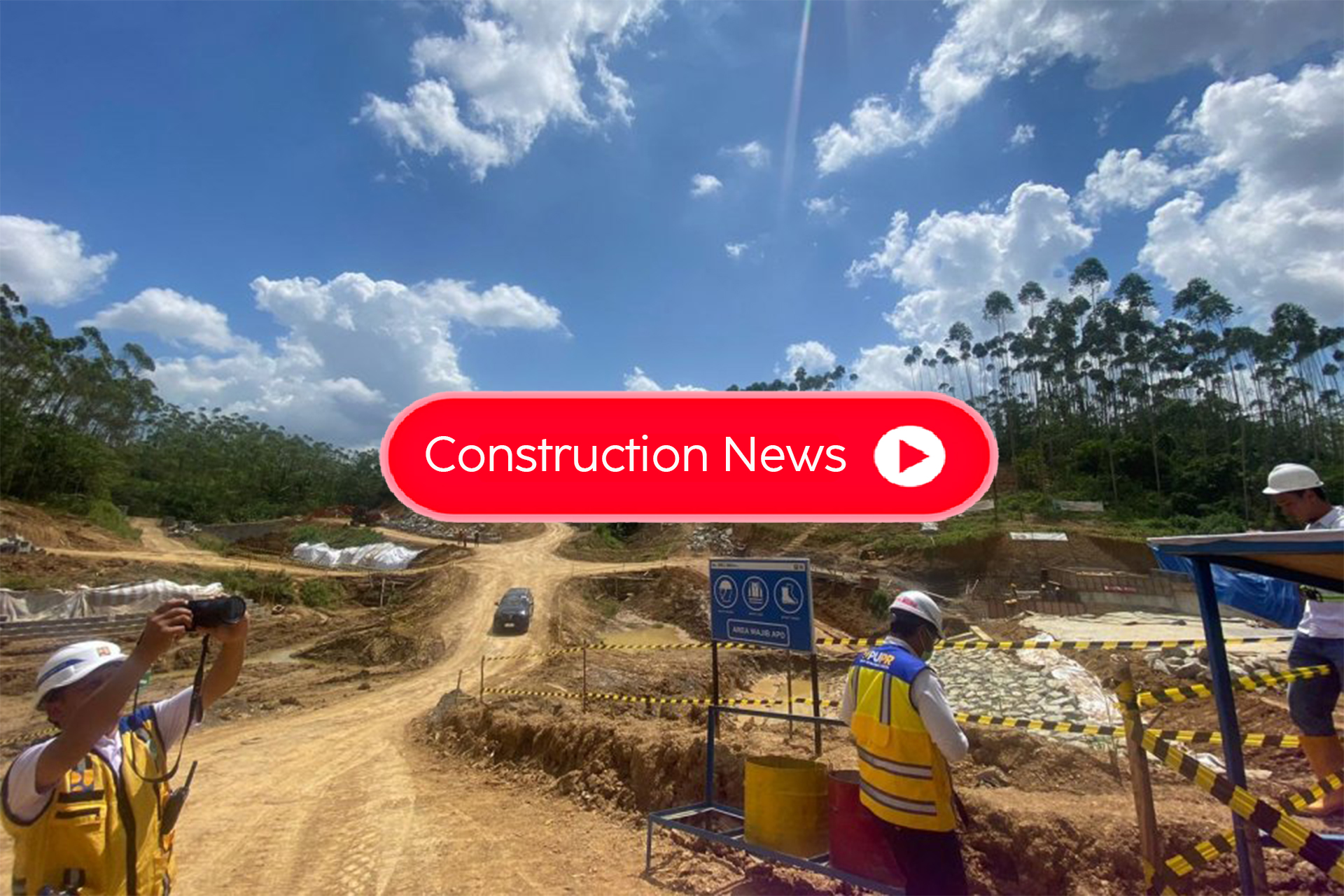Indonesia’s Construction News– The ambitious megaproject of the Nusantara Capital City continues to forge ahead, encompassing plans of grandeur and aspirations of national transformation. This audacious endeavor construction demands significant financial backing, and in pursuit of this support, the government is strategically extending a bouquet of enticing incentives to allure potential investors into committing their capital to this monumental project. Spanning from tax waivers to the extension of the Right of Use of Land (Hak Guna Usaha), the government has embarked on a comprehensive campaign to actively market this venture.
The sheer scale of the Nusantara National Capital City project, with an estimated development cost of Rp 466 trillion spanning from 2020 to 2045, renders it apparent that this mammoth undertaking cannot seamlessly progress towards fruition without the substantial contribution of financial resources from prospective investors. Recognizing the pivotal role these funds play, the government is sparing no effort in providing a range of inducements and facilitating conditions to encourage investor engagement.
This strategic promotion of the project has been yielding encouraging outcomes. The response from countries and investors expressing interest in participating in the Nusantara National Capital City project has been mounting. Bambang Susantono, the Head of the National Capital City Authority (OIKN), remarked that by the time August 2023 arrived, Indonesia had already garnered over 250 Letters of Intent (LOI) from enthusiastic investors.
“A significant number indeed, more than 250 Letters of Intent (LOI) from various countries (investing) have been on the move, and the last count showed around 17 countries, which may have grown to 19 by now. Active communications are ongoing with those who are genuinely committed under non-disclosure agreements,” Bambang shared during an interaction with the media at Taman Ismail Marzuki on Thursday (8/3/2023), as cited from Detik’s report.
Bambang emphasized that the predominant interest hails from countries such as Singapore, South Korea, various European Union nations, the United States, Japan, and China.
The question that arises then is: What avenues is the government pursuing to captivate these international investors? A succinct summary of these strategies follows.
Indonesia’s Construction: Full Corporate Income Tax (PPh) Exemption of up to 100% for Nusantara Investors
Comprehending the significance of incentives in light of the fact that 80% of the Nusantara National Capital City’s funding is anticipated from private sector sources, the government has introduced a set of regulations (PP) that delineate the incentives for investors embarking on the Nusantara project. Government Regulation Number 12 of 2023, titled “Business Licensing, Ease of Doing Business, and Investment Facilities for Business Players in the Nusantara National Capital City,” was endorsed by President Joko Widodo on March 6, 2023.
As a promising proposition, President Jokowi has pledged that foreign companies willing to relocate their headquarters to the Nusantara National Capital City will be eligible for incentives, primarily a 100% exemption from corporate income tax.
This incentive will remain in effect for a decade. Following this initial period, the magnitude of the tax reduction incentive will diminish to 50%, remaining applicable for the ensuing decade.
The tax incentive will be conferred to business entities satisfying specific conditions, including, firstly, being associated with a minimum of two affiliated units and/or related business entities outside Indonesia.
Secondly, these businesses must demonstrate economic substance within the Nusantara Capital City, and thirdly, they must formalize their legal status in the form of a corporation.
Indonesia’s Construction: Foreign Workforce Can Operate and Reside within Nusantara for up to 10 Years
In a bid to further encourage investor enthusiasm, President Jokowi has extended permission for foreign workers to be employed and dwell within the Nusantara National Capital City for a decade, with provision for extension as per stipulated guidelines.
Consequently, both foreign and domestic enterprises can capitalize on the option of employing foreign workers. Notably, foreign investors keen on investing in the Nusantara project can engage foreign workforce members to contribute to the execution of pivotal projects within the capital city.
“Concerning the duration of residence permit issuance, this period may be extended in accordance with the terms outlined within the employment agreement between the business entity and the foreign worker,” as detailed within the PP 12/2023 regulation.
Elongation of Land Use Rights (HGU) within Nusantara for up to 190 Years
Moreover, President Jokowi has authorized the elongation of land use rights (HGU) beyond land management rights within the Nusantara National Capital City, permitting an extension of up to 190 years over the course of two cycles.
The initial cycle spans 95 years and comprises three distinct phases: the issuance of rights for a maximum of 35 years, the extension of these rights for 25 years, and the subsequent renewal of rights for an additional 35 years. Subsequently, these rights may be further extended for a second cycle encompassing an additional 95 years.
Building Permit Validity for as long as 80 Years
President Jokowi has also granted the privilege of building rights (Hak Guna Bangunan) for a single cycle lasting up to 80 years. This privilege is characterized by the issuance of these rights, duly recorded in the building rights certificate (HGB).
This concession applies to properties such as landed houses (rumah tapak), where the building rights may be elevated to ownership rights, and apartment buildings, wherein ownership rights are conferred for individual units.
Within the ambit of this initial 80-year cycle for building use, rights are granted in three sequential stages: firstly, the issuance of rights for a maximum of 30 years.
Secondly, an extension of rights for a period of up to 20 years, and thirdly, the renewal of rights for a subsequent 30-year period.
These extensions and renewals of HGU can be availed simultaneously after five years of effective utilization and/or implementation of HGU, in alignment with its intended purpose.
It is widely known that since 2021, the government has embarked on the physical construction of infrastructure and the central administrative precinct within the Nusantara National Capital City. This expansive endeavor encompasses complementary infrastructure, including the Balikpapan-IKN toll road, the Sepaku Semoi Dam, the Nusantara Capital City’s circular road, and the cultivation of Mentawir seedlings.
The government’s aspiration is to hoist the national flag during the commemoration of Indonesia’s 79th Independence Day at the Presidential Palace within the Nusantara National Capital City on August 17, 2024.



 20% off today. Whatsapp us!
20% off today. Whatsapp us!